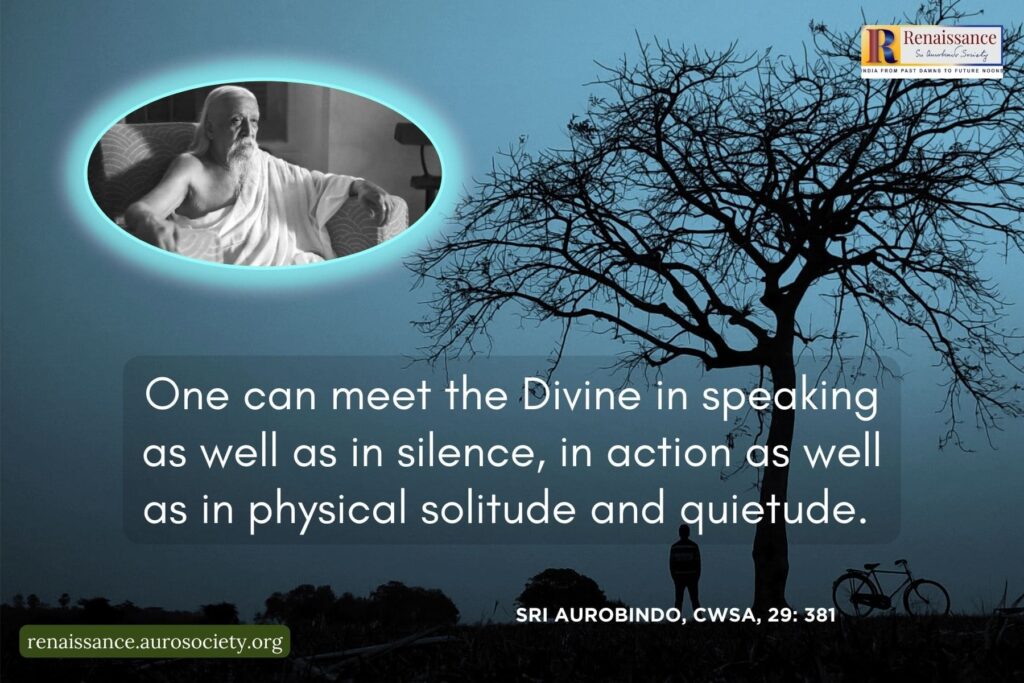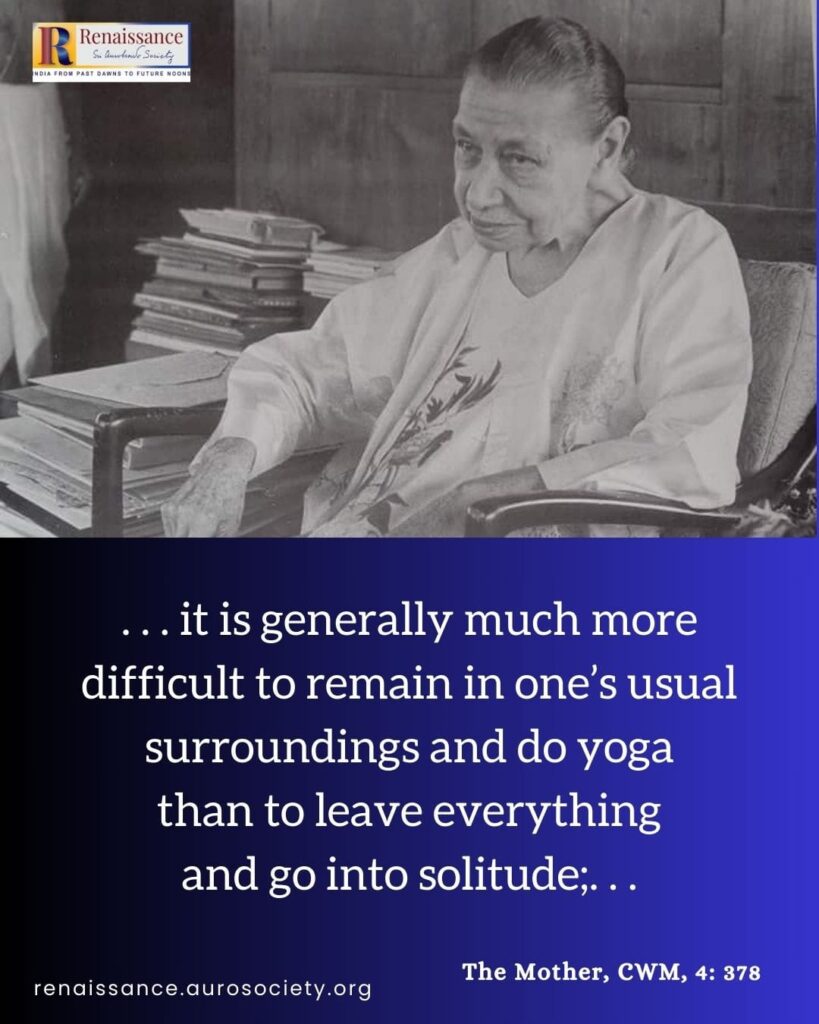Release of Renaissance, Volume V, Issue 6
Date: June 21, 2024
In the previous issue we featured a few letters of Sri Aurobindo where he discusses the desirability of limiting social contacts but without going into an absolute isolation or retirement. In the current issue we feature a few passages from the Mother’s works to deepen our understanding of this. The feature titled On Controlling One’s Subconscient and Yoga in the World highlight the life-affirming aspect of Integral Yoga, and reminds us that this is not the path of ascetic doing sadhana in solitude, but one that is done in the world with all challenges that life presents.
To Talk or Not to Talk features selected letters of Sri Aurobindo which help us understand the value of controlling our urge to indulge in unnecessary talking, especially if we aspire to walk on the path of sadhana. He reminds us that talking often leads to a dispersion of consciousness. But he also emphasizes that instead of observing complete mauna, we must become conscious of our speech, learn to control it, and also practice keeping an inner detached state when speaking. We also include a narration of Kahlil Gibran’s poem titled ‘On Talking‘.

The 2-part feature titled Control of Speech, Mental Austerity and Inner Silence helps us deepen our understanding of the need to control our speech instead of complete abstinence as it highlights the relevant selection from the Mother’s essay titled ‘The Four Austerities and the Four Liberations‘. Through several practical examples, she helps us understand how we can consciously practice this control of speech in order to progress on the path of Integral development.
The True Solitude is an Inner Separation highlights two short commentaries by M.P. Pandit from Volume 4 of Commentaries on the Mother’s Ministry. These commentaries give us a comprehensive understanding of the right place and value of solitude in the dynamic Integral quest for progress, perfection and transformation.
We have also included some practical guidance from the Mother with regard to Silence and Education. In One Note of Zen, Narendra Murty tells the story of a Zen master, Kakua, the first Japanese to study Zen. But no one remembers Kakua. Why? Read on to find the reason. Dimple Chhabra writes a poem in Hindi titled, चल, आज कहीं चुपचाप जा बैठें – Come, Let’s Go to That Quiet Place which speaks of the aspirant’s yearning for that Silence and Solitude in which she can constantly stay connected with the Divine.


